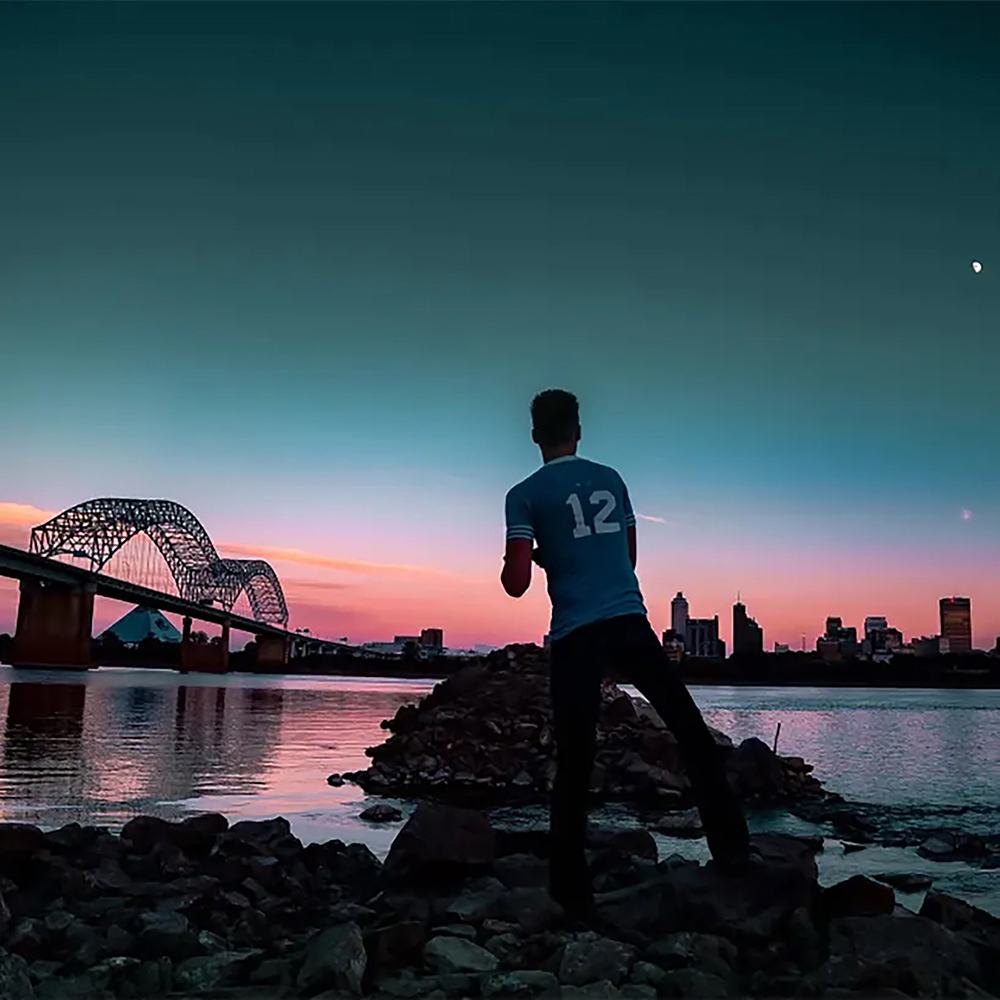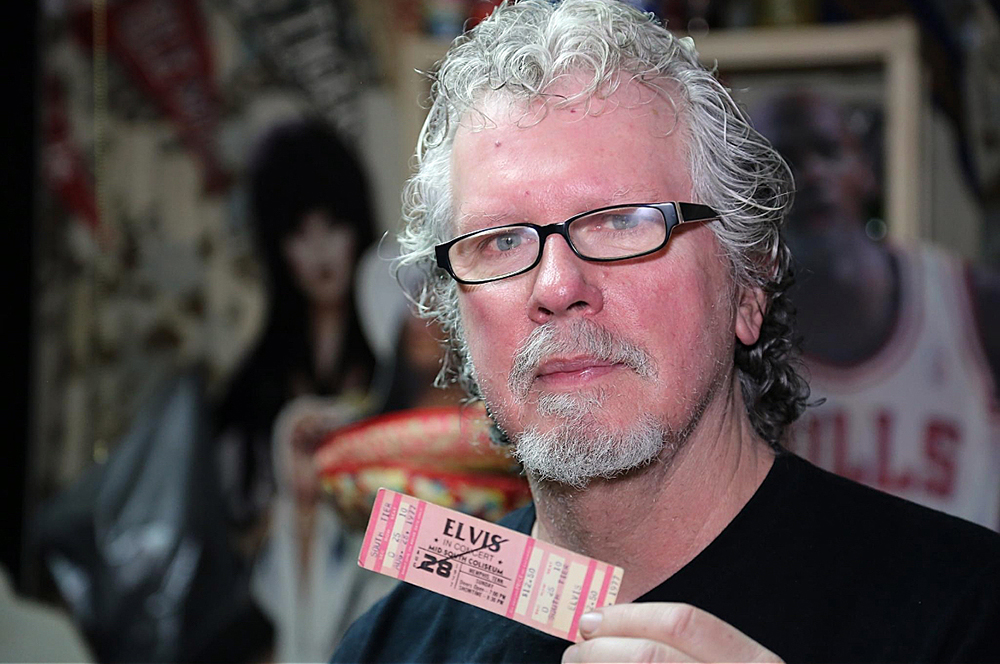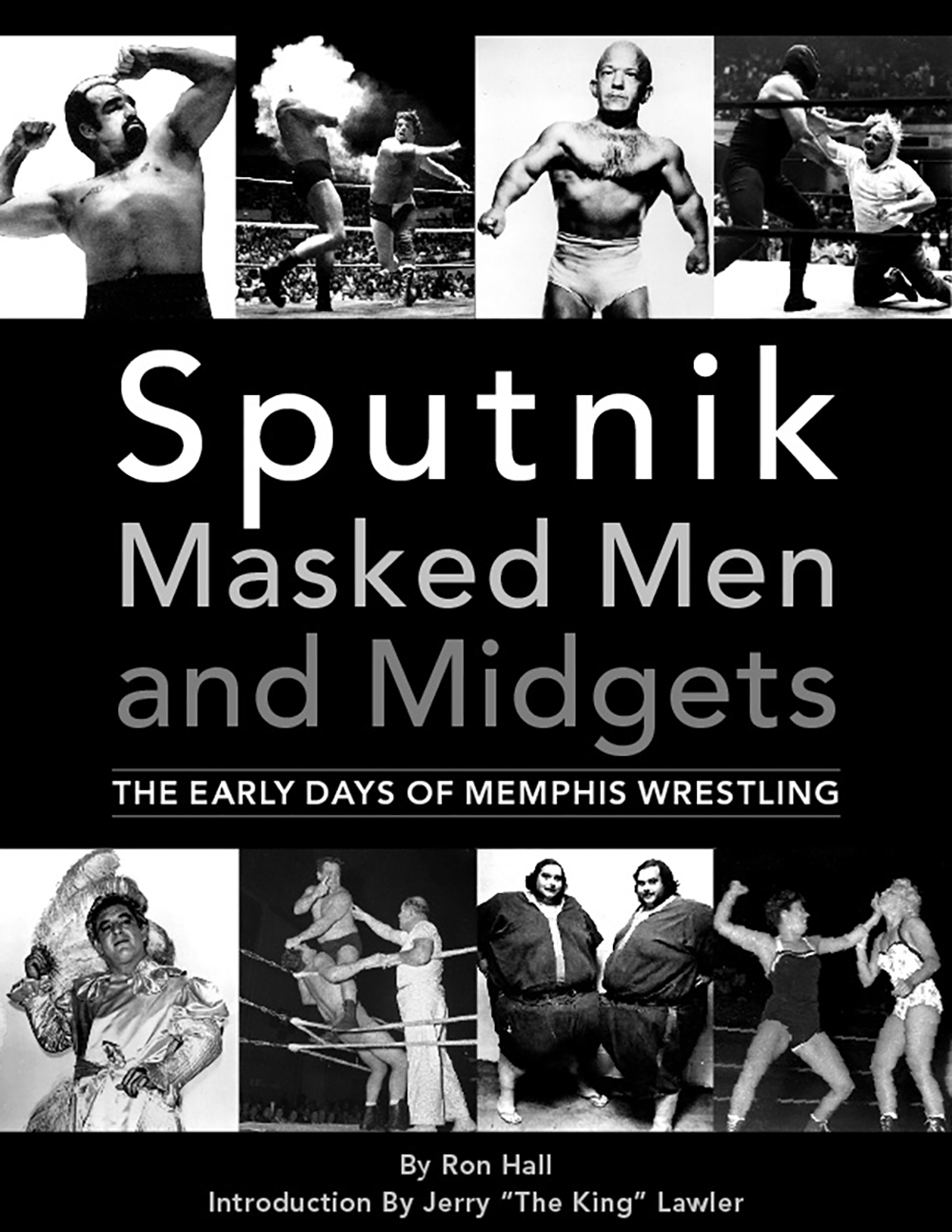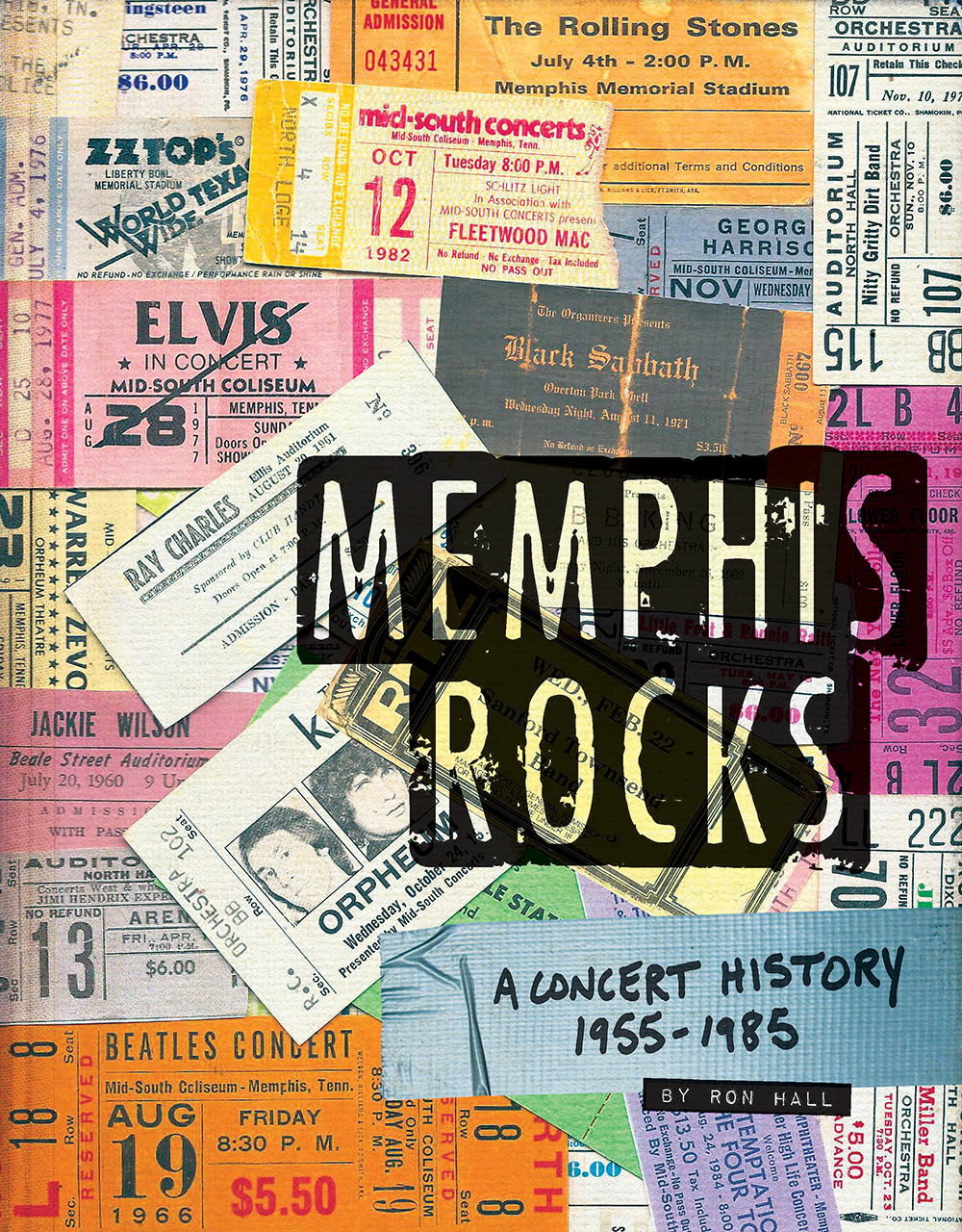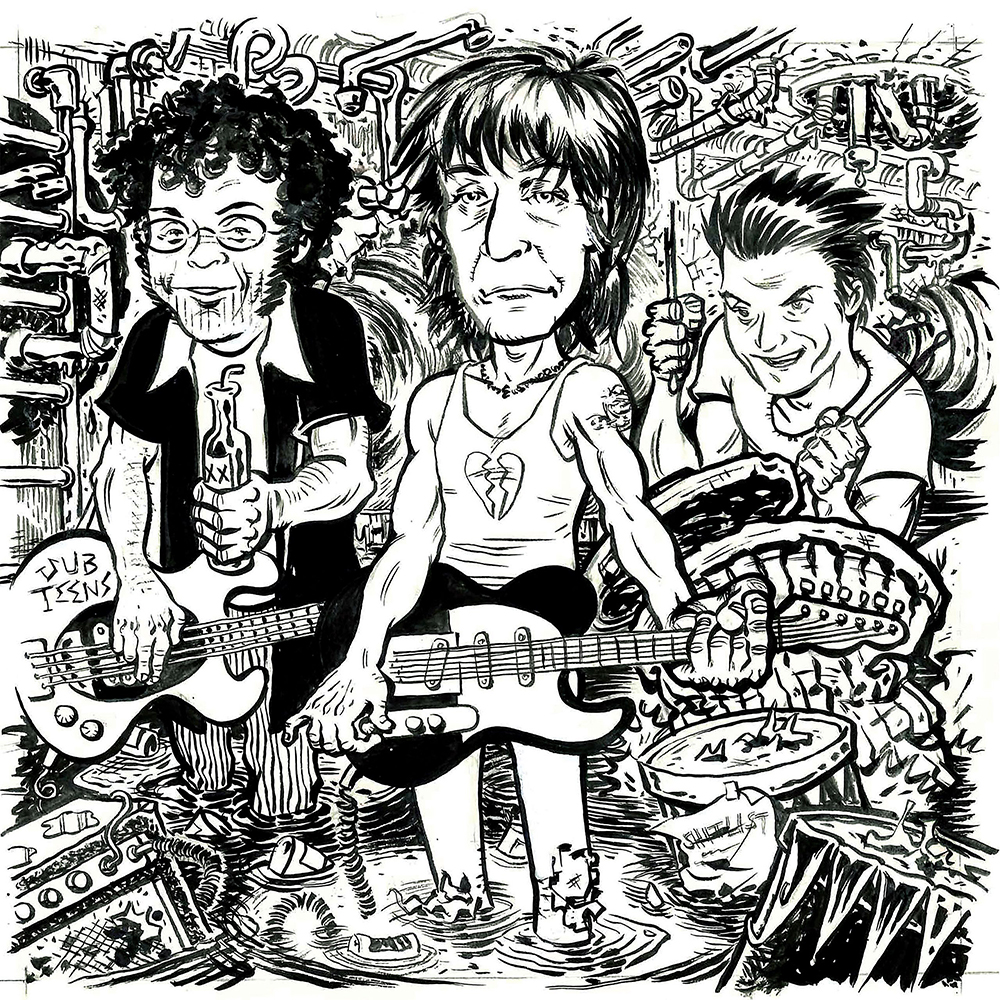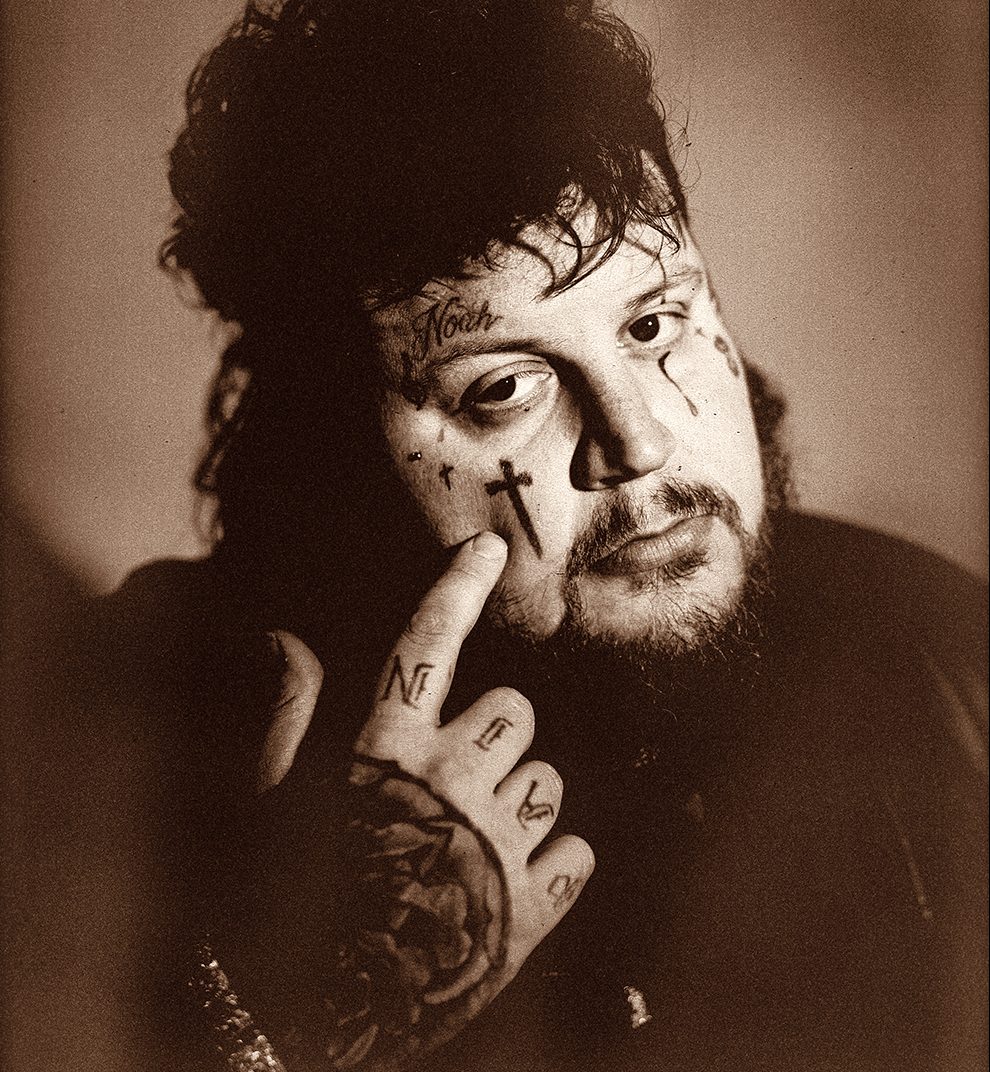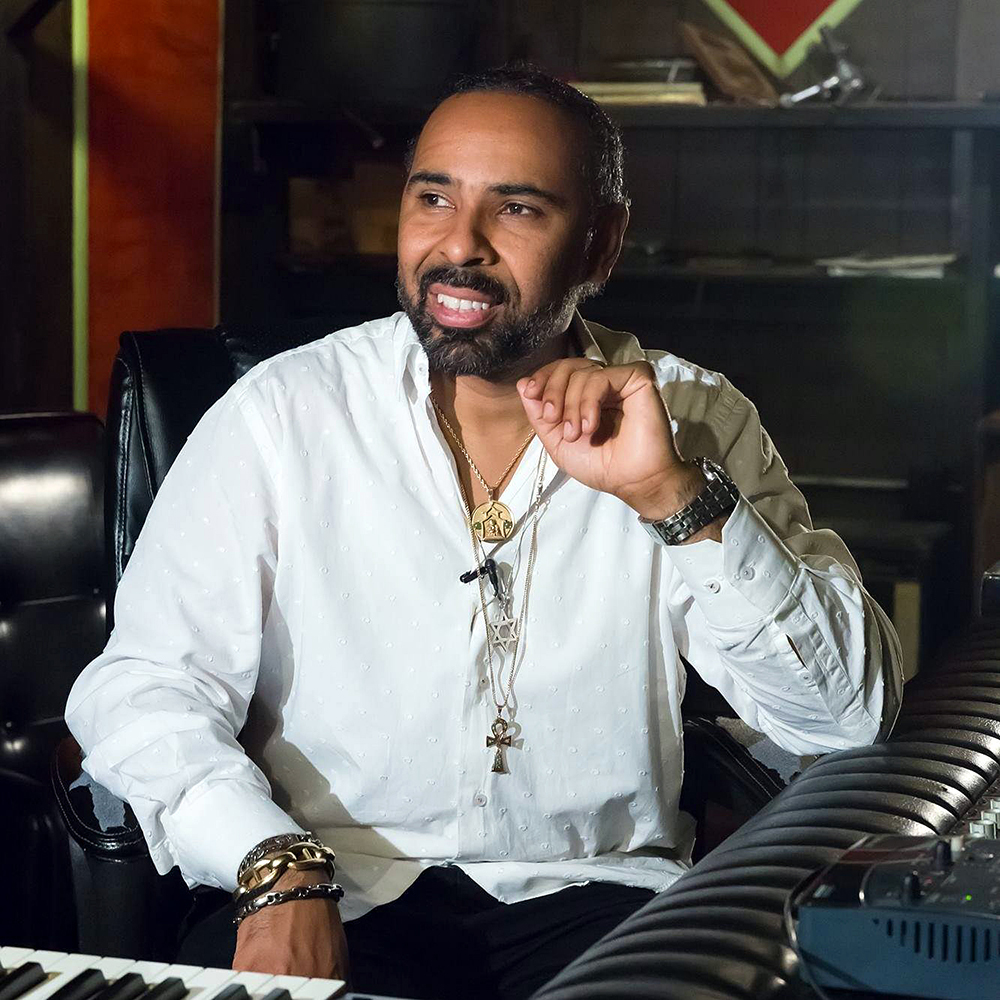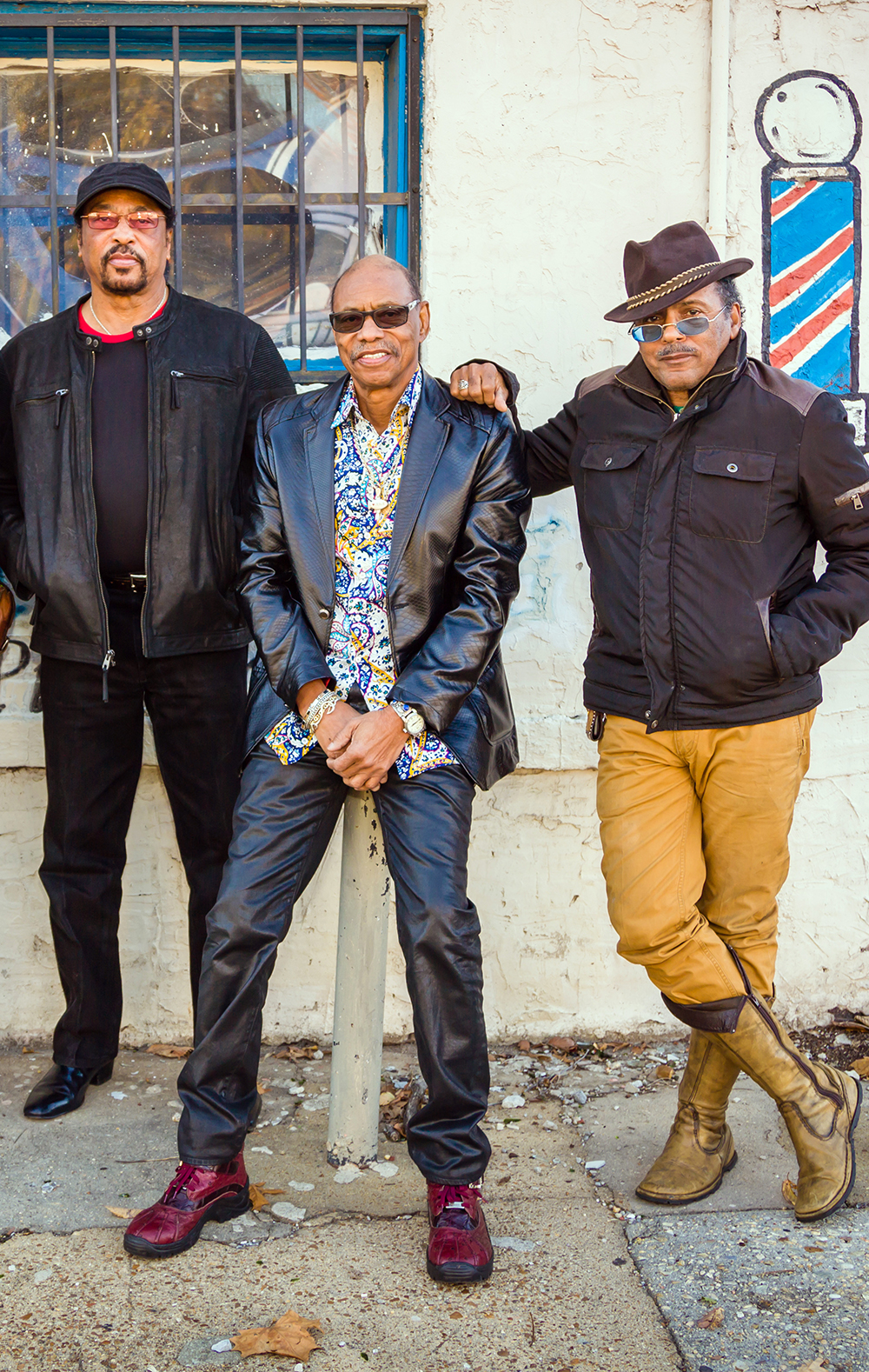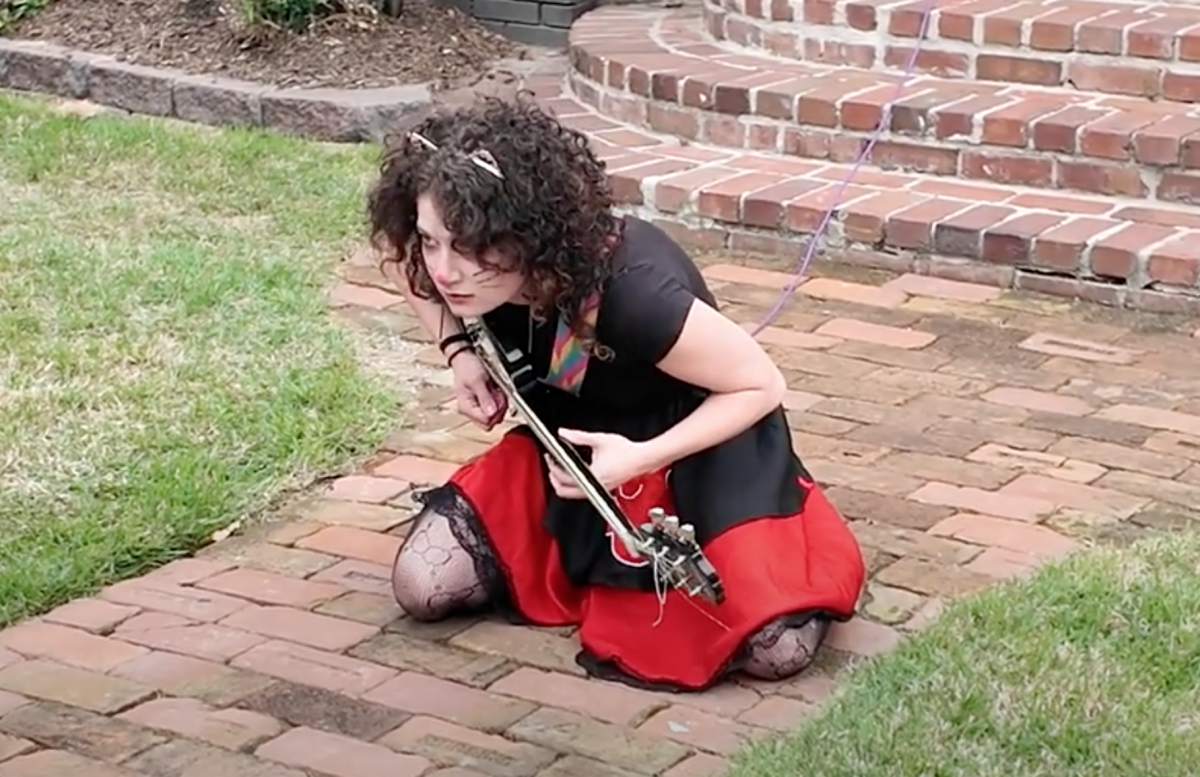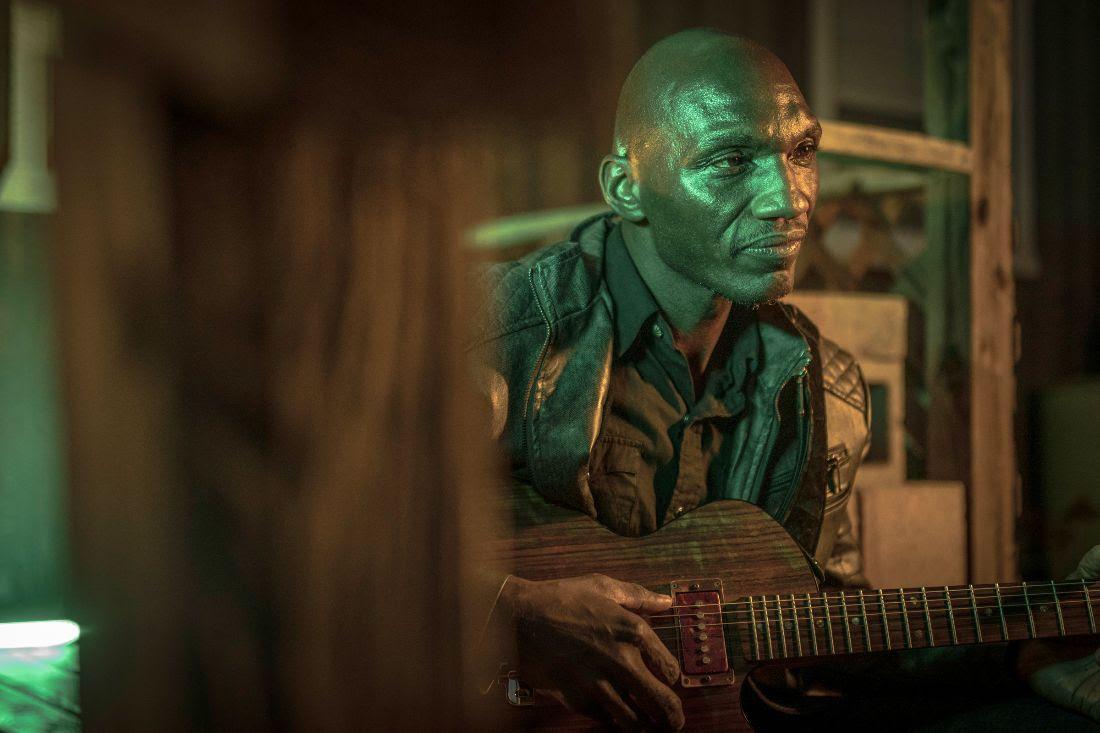Memphis, it’s summer. Officially. June 20th marks the start of the season. So that means it’s time for the Flyer’s Summer Arts Guide, and never one to disappoint, the Flyer has it ready, not a moment too soon, and not a moment too late.
ON DISPLAY
“Memphis 2024”
Memphis 2024 celebrates artists working in Memphis today through more than 50 works.
Dixon Gallery & Gardens, through June 30
“It’s All Relative”
Morgan Lugo’s metal work examines how our unique perspectives shape our experiences.
Metal Museum, through July 7
“Progression”
Sowgand Sheikholeslami’s colorful paintings exist outside of realism.
Dixon Gallery & Gardens, through July 7
The WE Art Gallery
This year’s annual exhibit at the Woman’s Exchange features new works by established local and regional artists and a number of talented newcomers.
Woman’s Exchange, through July 31
“People Are People”
This exhibit honors famed American designer Christian Siriano’s electrifying contributions to fashion.
Memphis Brooks Museum of Art, through August 4
“Branching Out”
Discover intricate connections between students, teachers, and casting communities, which branch out much like a family tree.
Metal Museum, through September 8
“Summer Art Garden: Creatures of Paradise”
Monstrous bugs and tiny Thumbelinas relax in a fantasy landscape in Banana Plastik’s installation.
Memphis Brooks Museum of Art, through October 26
“Bracelets, Bangles & Cuffs: 1948–2024”
This collection of contemporary bracelets reveals the wide-ranging creativity of artists working in this jewelry form.
Metal Museum, through November 17
“2023 Wilson Fellowship: Danny Broadway, Claire Hardy, Thad Lee, and John Ruskey”
The Dixon has partnered with the town of Wilson, Arkansas, to help bring cultural activity to the Arkansas Delta through an artist residency program. This exhibit features work by the inaugural cohort of Wilson Fellows, Danny Broadway, Claire Hardy, Thad Lee, and John Ruskey.
Dixon Gallery & Gardens, July 14-September 29
“Health in Enamel”
Themes of health, healing, and spirituality crystallize with a survey of current enamel holdings in the Metal Museum’s permanent collection and a community-based quilt project.
Metal Museum, July 14-September 29
“Southern/Modern: 1913-1955”
This exhibit tells the tale of progressive visual art in the American South.
Dixon Gallery & Gardens, July 14-September 29
“Beyond the Surface: The Art of Handmade Paper”
This exhibit explores the shape-shifting quality of paper.
Memphis Brooks Museum of Art, September-December
“Roll Down Like Water”
Memphis-based Peruvian-American photographer Andrea Morales’ portrayal of the Delta South is deeply rooted in the communities she engages with.
Memphis Brooks Museum of Art, September-January
ON STAGE
Catch Me If You Can
This musical tells the thrilling adventure of a con artist who poses as a pilot, doctor, and lawyer, all while being pursued by the FBI.
Playhouse on the Square, through July 14

Concerts in the Grove
Enjoy music, food trucks, and corn hole. Scheduled to perform are Cyrena Wages (June 20), Alice Hasen and Josh Threlkeld (June 27), and MSO Big Band (September 19).
Germantown Performing Arts Center, select Thursdays
Orion Free Concert Series
The Orion Free Concert Series welcomes local, national, and international acts. Find the full lineup at overtonparkshell.org/freeconcertseries. Opera Memphis will give a special Opera Goes to Broadway performance on September 29, and Tennessee Shakespeare Company will perform a special production of Shakespeare’s The Comedy of Errors on October 20.
Overton Park Shell, select dates
Happy Hour in the Grove
Enjoy a free concert, drink specials, deals on local beer, and $5 wine. Scheduled to perform are Short in the Sleeve (June 21), Soulshine (June 28), Bedon (July 12), Alexis Jade and D Monet (July 19), and rising talent from the Circuit Music Seen (July 26).
Germantown Performing Arts Center, Fridays through July
Cinderella
The iconic saga of rags to romance comes to life in Rodgers and Hammerstein’s Broadway classic.
Theatre Memphis, through June 30
9 to 5: the Musical
Collierville Arts Council presents this fun musical, based on the titular film, with music by Dolly Parton.
Harrell Theatre, June 21-30
Come From Away
Residents of small town in Newfoundland open their homes to 7,000 stranded travelers on 9/11.
Orpheum Theatre, June 21-23
Coco Queens
Four women confront the deep and often painful challenges of love, forgiveness, and Black womanhood.
TheatreWorks@TheSquare, July 12-28
MAMMA MIA!
The characters, the story, and the timeless hits of ABBA are what make this the ultimate feel-good show.
Orpheum Theatre, July 23-28
Carmen Jones
Hattiloo Theatre puts on this World War II-era musical about a love that turns deadly.
Hattiloo Theatre, July 26-August 18
Coconut Cake
A woman moves to town and tempts Eddie and his retiree buddies with her mysterious ways.
Hattiloo Theatre, August 9-September 8
Bill Cherry … The Final Curtain
World-renowned Elvis Tribute Artist Bill Cherry returns to the Halloran Centre with special guest Ginger Alden.
Halloran Centre, August 14
Grease
Grease is the word in this iconic musical.
Theatre Memphis, August 16-September 8
Ride the Cyclone
Six high-school choir members have died on a faulty rollercoaster. A mechanical fortune teller offers one of them the chance to return to life.
Germantown Community Theatre, August 16-September 1
Waitress
Jenna, a skilled pie maker and waitress, is trapped in a loveless marriage with an unexpected pregnancy, but finds hope in a baking contest.
Playhouse on the Square, August 16-September 15
PJ Morton
The five-time Grammy-winning soul singer, songwriter, performer, producer, and Maroon 5’s full-time keyboardist for the past 12-plus years comes to Memphis.
Orpheum Theatre, August 18
Jazz in the Box: Alexa Tarantino Quartet
Get up close and personal with live jazz, including performances by the Alexa Tarantino Quartet on September 6 and Tierney Sutton and Tamir Hendelman on September 27.
Germantown Performing Arts Center, September 6 and 27, 7 p.m.
Memphis Songwriters Series: Victoria Dowdy, JB Horrell, and Raneem Imam
Hear from three of Memphis’ own seasoned musicians.
Halloran Centre, September 12
Southern Heritage Classic Presents Patti Labelle
The Godmother of Soul brings her effortless ability to belt out classic rhythm and blues renditions, pop standards, and spiritual sonnets.
Orpheum Theatre, September 12
A Midsummer Night’s Dream
Theatre Memphis puts on one of the Bard’s most popular comedies.
Theatre Memphis, September 13-29
Little Shop of Horrors
This deviously delicious Broadway and Hollywood sci-fi smash musical has devoured the hearts of theater-goers for over 30 years.
Harrell Theatre, September 13-22
What the Constitution Means to Me
Playwright Heidi Schreck skillfully breathes new life into the Constitution through her innovative play.
Playhouse on the Square, September 13-October 6
Rachmaninoff’s Rhapsody on a Theme of Paganini and Copland’s Third Symphony
Memphis Symphony Orchestra kicks off its 2024-2025 season with this performance.
Cannon Center, September 14, 7:30 p.m. | Scheidt Family Performing Arts Center, September 15, 2:30 p.m.
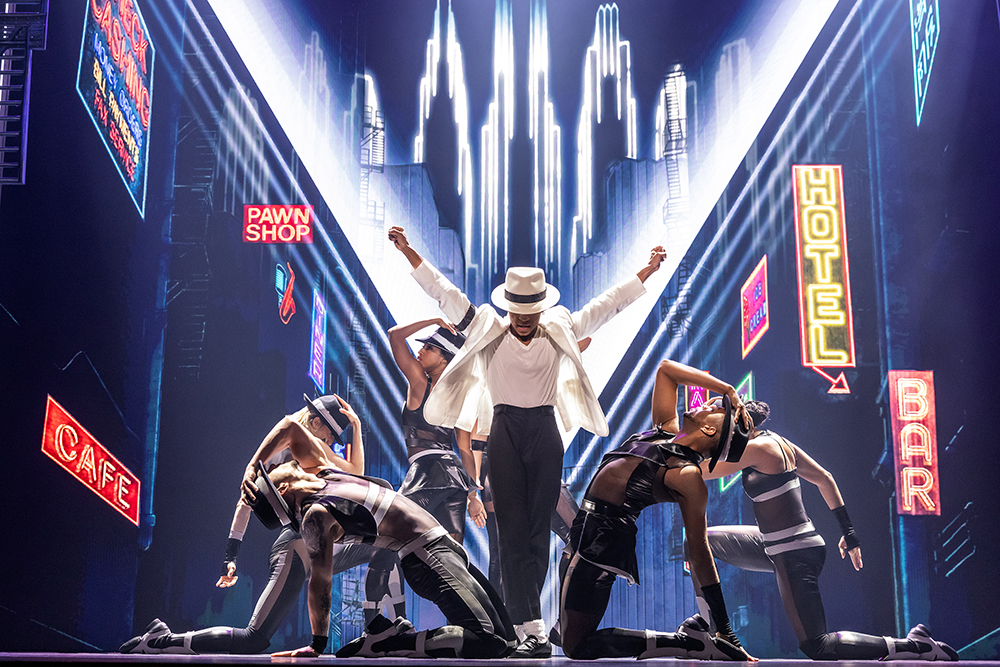
MJ
Michael Jackson’s unique and unparalleled artistry comes to Memphis in MJ, the multi Tony Award-winning new musical centered around the making of the 1992 Dangerous World Tour.
Orpheum Theatre, September 17-22
Patterns
Germantown Community Theatre presents emerging local playwright Michael Hoffman’s world premiere of Patterns.
Germantown Community Theatre, September 20-29
Avatar: The Last Airbender in Concert
This captivating experience blends a live orchestral performance of the iconic series soundtrack with an immersive two-hour recap of the animated show’s three seasons on a full-size cinema screen.
Orpheum Theatre, September 25
AROUND TOWN
Super Saturday
The Brooks offers free admission and art-making during its monthly Super Saturdays.
Memphis Brooks Museum of Art, first Saturday of the month, 10 a.m.-noon
Stax Family Day
Join the Stax for a fun-filled afternoon with free admission, games, activities, and music.
Stax Museum of American Soul Music, second Saturday of the month
Live In Studio A: Summer Series with 926
Join the Stax Museum of American Soul Music for live music by 926, the Stax Music Academy Alumni Band. Admission is free for all Shelby County residents.
Stax Museum of American Soul Music, Tuesdays, June and July, 2-4 p.m.
Munch and Learn
Grab lunch and enjoy a lecture presented by local artists, scholars, or Dixon staff, sharing their knowledge on a variety of topics.
Dixon Gallery & Gardens, Wednesdays, noon-1 p.m.
Whet Thursday
The Metal Museum hosts a free after-hours event with demonstations, admission to the galleries, food, and drink.
Metal Museum, last Thursday through August, 5-8 p.m.
Wax & Wine: Soul Records + Southern Chefs + Global Wine
Wax & Wine is a fundraiser benefiting Stax Museum of American Soul Music, and celebrating the unmistakable character of southern soul and R&B music, food, and wine.
Stax Museum of American Soul Music, June 28, 7 p.m.
Glam Rock Picnic: Fundraiser, Art Market, & Interactive Sculpture Party
Participate in the making of local artist Mike McCarthy’s newest sculpture, The Aladdin Sane Weathervane, a 9-foot tall statue honoring David Bowie. Featuring live music, art vendors, face painting, Eric’s food truck, and a David Bowie-themed bar, this event has something for everyone.
Off the Walls Arts, June 30, noon-5 p.m.
Exhibition Lecture: Hidden in Plain Sight: Reconsidering the South’s Role in Modern American Art
Exhibition curator Dr. Jonathan Stuhlman will discuss how “Southern/Modern” was conceived and organized, and introduce the key artists and themes found in the show.
Dixon Gallery & Gardens, July 14, 2-4 p.m.
“Christian Siriano: People Are People” Inspired Pattern Making Workshop with Jayla Slater
Teaching artist Jayla Slater leads a hands-on fashion workshop and explore fashion as a designer.
Memphis Brooks Museum of Art, July 24, 5:30 p.m.
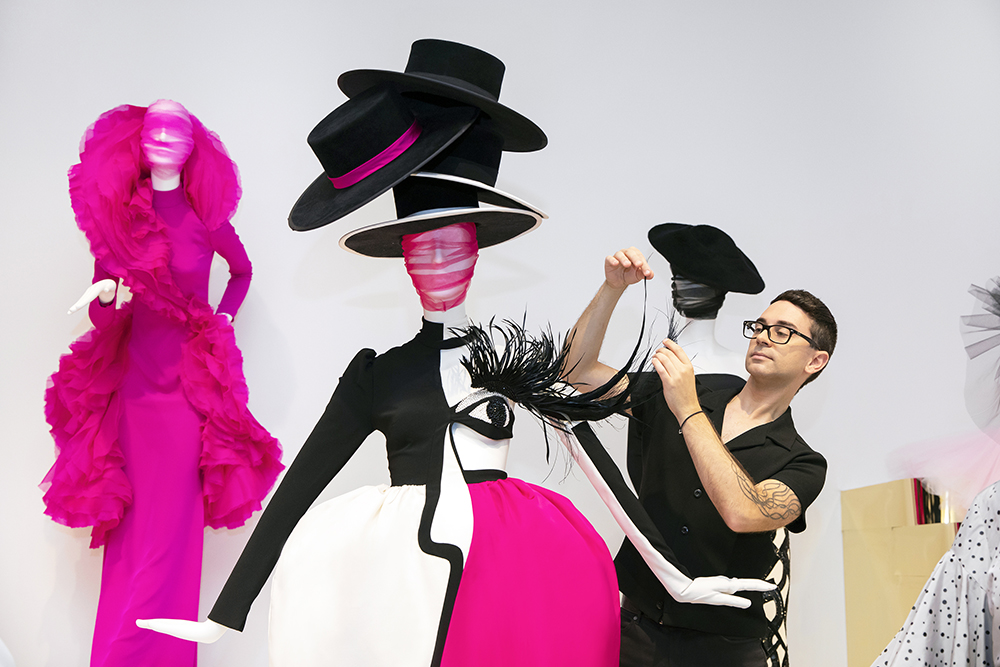
A Fashion History Tour of “Christian Siriano: People Are People” with Ali Bush
Get an inside look at how fashion history informs contemporary designers like Christian Siriano from Ali Bush’s point of view, in the “People Are People” exhibit.
Memphis Brooks Museum of Art, August 1, 6-7 p.m.
Art on the Rocks: Garden Cocktails & Craft Beer (21+)
Art on the Rocks brings botanical cocktails, craft beer, wine, and more together in the gardens. Guests will enjoy a variety of drink tastings, bites from local restaurants, and live music.
Dixon Gallery & Gardens, September 6, 6-9 p.m.
6×6 Art Show-Canvas for a Cause
Join the UrbanArt Commission for the 6×6 Art Show-Canvas for a Cause where artists showcase their talent on small canvases to support a great cause.
UrbanArt Commision, September 12,6-8 p.m.
………………………………………………………….
“It’s a Fine Line”
Since opening her Sheet Cake Gallery in December 2023, Lauren Kennedy has enjoyed pairing artists together in two-person exhibitions, making aesthetic connections that wouldn’t have been made otherwise. For the upcoming show, “It’s a Fine Line,” with Stephanie Howard (Greenville, SC) and Khara Woods (Memphis), Kennedy says both artists reflect on the passage of time — “feelings of impermanence and lack of control” — both through meticulous linework, repetition, and attention to detail.
“For Stephanie, in sitting down and really getting lost and meditating in the practice of making these really intricate detail drawings, she finds that she can suspend a moment in time in the work that is going to live on forever as that finished product,” Kennedy explains.

Meanwhile, the precise, geometric forms in Woods’ woodworking evoke her deep love for architecture and desire for structure in a chaotic world. “Specifically in this body of work for Sheet Cake, she’s gotten really fixated on thinking about the life cycles of stars,” Kennedy says. “And we use the stars and celestial bodies to mark time or to measure unimaginable distances, but at the same time, they’re so beyond our reach and so outside of our full comprehension. So there’s both this process of exerting her own control through the way that she is making the work, and being able to create these highly ordered and clean, precise woodcut panels, but also kind of honoring the universe in which we’re existing and in these things that are really beyond her control.”
“These are concepts that really can be very overwhelming and consuming,” Kennedy continues, “but then to take that and to make something really specific and just find their way through it by the process of creating art, I find it really poetic in a way.”
Yet when seeing the show, Kennedy encourages viewers to seek out whatever makes their “heart sing.” “It’s totally valid to have your own experience and understanding of it,” she says. “I would just want people to come in and feel moved by the work and to feel excited about the work.”
“It’s a Fine Line” Opening Reception, Sheet Cake Gallery, Saturday, June 29, 5-7:30 p.m.
On view through August 9.
………………………………………………………….
24 Hour Plays
In 24 hours, six playwrights will write six 10-minute plays, which six directors will then direct for 24 actors to then act in. It’s the ultimate challenge for any theater-lover, a beloved format founded in New York City back in 1995 and adopted by LoneTree Live for Memphis in 2022. This June marks Memphis’ third 24 Hour Plays.
On Friday, June 28th, the six writers will write overnight, says Julia Hinson, LoneTree’s executive director. “I almost think of it like a theater lock-in. Their plays are due at 6 a.m. and then we print all the plays. And then the directors come just a little bit later, and the actors, and then we rehearse all day. And then by seven o’clock the next night, we perform all six plays.”
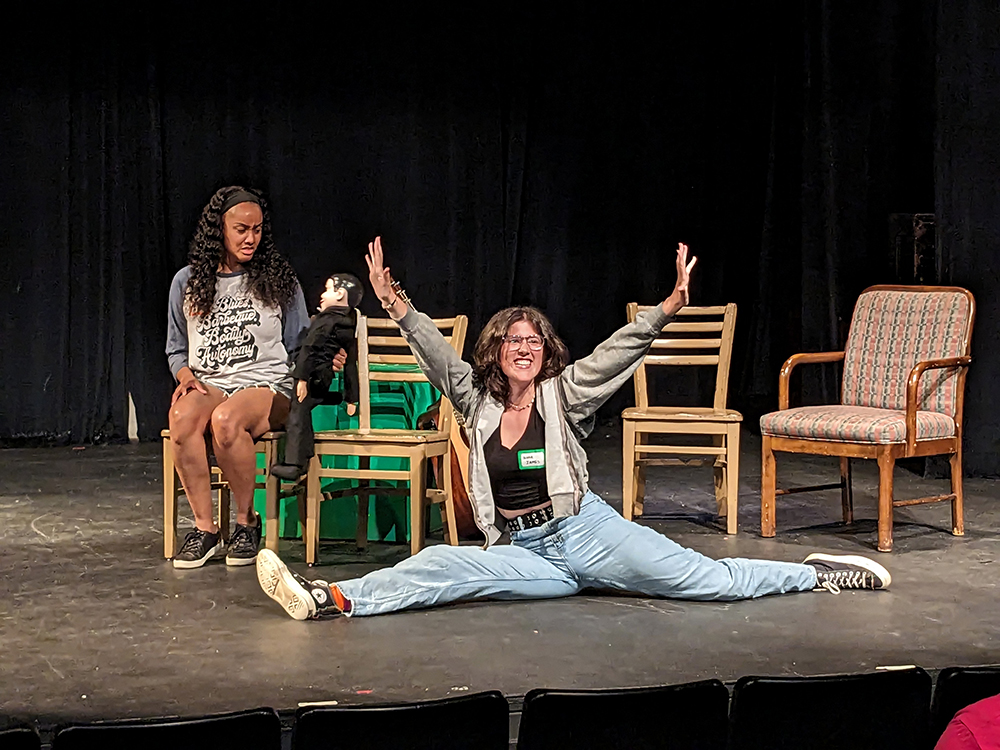
Of the day, Hinson says, “It’s fun. It’s exhilarating. There’s usually a moment in the day for the actors, where they are like, ‘Why did I sign up for this?’ Because it can be pretty scary to think you’re gonna go on at the end of the night.”
Perfection is often unattainable for the performances, which actually can be creatively freeing in stages as early as the writing process. “At a certain point you just have to be done, yet you still get a production,” Hinson says. “In the world of theater, you’re not always guaranteed a production. We love to give local talent the opportunity to shine.”
The plays themselves range from comedy to drama. “Then, there’s always just a level of absurdity,” Hinson says. “I don’t know if it’s the late hours or just how quickly we have to do it, but there’s always kooky kookiness.” She adds, “It really is a celebration of the theater community.”
Before the production and in between plays, musician and composer Eileen Kuo will perform. There’ll also be donated beer from Hampline Brewery, popcorn, and cotton candy.
24 Hour Plays, TheatreWorks@Evergreen, Saturday, June 29, 7 p.m.
………………………………………………………….
Clandestine Creative Club
On any given Thursday evening, if you walk into the back of the Ink Therapy, you’ll find a group of artists — hobbyists and those looking to break into the scene professionally alike — working on their craft, whether it’s drawing, painting, graphic design, jewelry-making, or crochet. They call themselves the Clandestine Creative Club, and anyone’s welcome to join.
The founder of the club Noah Womack, who also goes by the artist name Braincrumbs, says he was inspired by a similar club called the Grind Shop that only lasted about a summer in Memphis a few years ago. “Artists would come together and work on projects,” he says. “After that ended, I think everybody was kind of missing that. And then after the pandemic, there was really a lack of community, and everybody felt very isolated and distanced. And I know, especially for a lot of my artist friends, especially after the pandemic, with a lot of their social anxiety, it was really hard to get out and meet people and get together after the pandemic. So after feeling that for several years, I wanted to put it back together.”
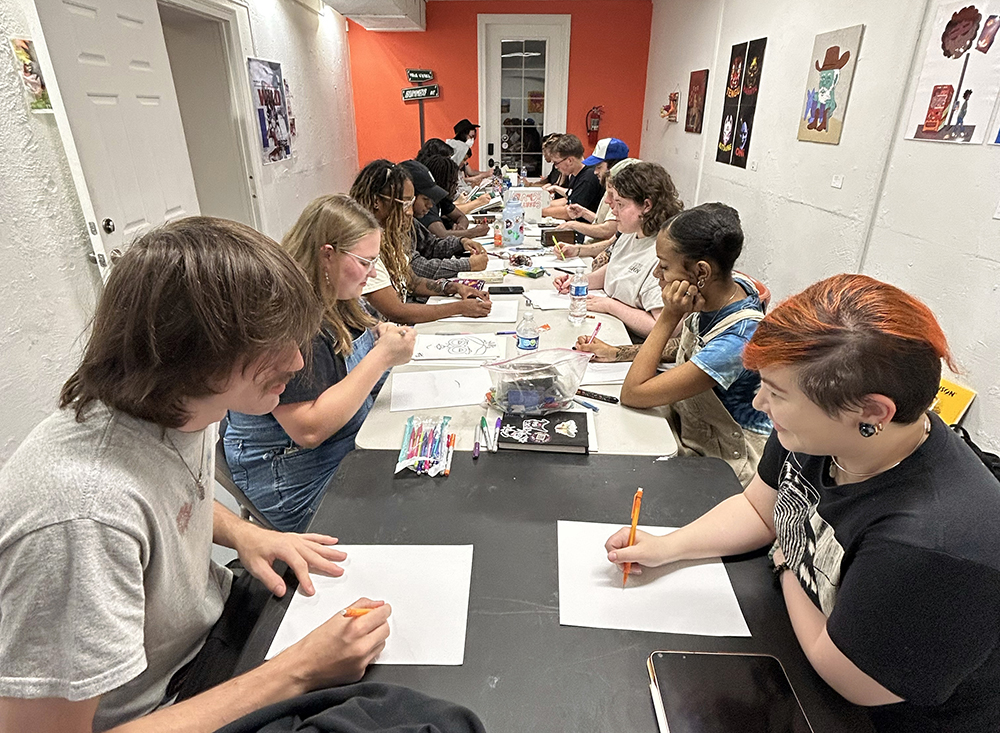
So last summer as David Yancy’s Ink Therapy was still getting its licensing in order, the tattoo shop opened its doors to the club which held meetings there for a while until the business opened. “This January, [Yancy] had bought that additional back room and had built a little area for us in the back,” Womack says. “So he invited me to start it back up, and so we’ve been doing it ever since then.”
The weekly meetings are free and non-committal, with members so far ranging in ages 19 to 35. “I consider anybody who’s been to the club meeting at least once to be an official club member,” Womack says.
Recently, the club started having theme nights, such as a “Clay Day” and an “Everybody Draw Everybody” night. “People seem to be a lot more engaged during those nights,” Womack says. “So I think I’d like to do some of those more often.”
Clandestine Creative Club, Ink Therapy, 485 N. Hollywood, Thursdays, 7-9:30 p.m. Keep up with the club on Instagram (@clandestinecreativeclub).

